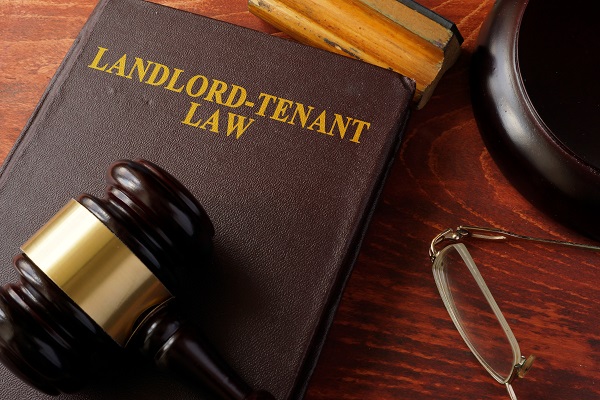Managing rental properties can be rewarding, but it also comes with challenges, particularly when disputes arise between landlords and tenants. Leading independent letting agents in Warrington say issues related to rent, property maintenance, or tenant behaviour, knowing how to handle these disputes effectively is crucial for maintaining a harmonious landlord-tenant relationship. Here’s a comprehensive guide for landlords in the UK on how to handle tenant disputes in 2024.
- Understanding Landlord/Tenant Disputes
Tenant disputes can arise for various reasons, such as maintenance issues, property damage, or rent arrears. The key to resolving these disputes lies in maintaining good documentation, staying calm, and following appropriate steps to find a resolution that satisfies both parties.
Common Types of Disputes:
- Rent-Related Disputes: Issues regarding late payments, non-payment, or underpayment of rent.
- Property Maintenance Disputes: Concerns over the upkeep and safety of the property.
- Noise and Disturbance Disputes: Complaints from neighbours about tenant behaviour.
- Property Damage Disputes: Disagreements over damages beyond normal wear and tear.
- Security Deposit Disputes: Issues related to the return or withholding of security deposits.
- Handling Rent-Related Disputes
Communication First:
When a tenant fails to pay rent on time, it’s essential to communicate with them promptly. There may be valid reasons for the delay, such as job loss or personal issues. Understanding the tenant’s situation can help in finding a mutually agreeable solution.
Developing a Payment Plan:
If the tenant’s reasons for late payment are genuine, consider negotiating a revised payment plan. This approach shows goodwill and can help maintain a positive relationship.
Formal Action:
If communication fails, send a formal letter requesting payment or contact the tenant’s guarantor if there is one. This step demonstrates the seriousness of the issue and may prompt the tenant to act.
- Addressing Property Maintenance Disputes
Regular Maintenance:
Ensure that the property is well-maintained and meets all safety regulations. Regular checks and prompt repairs can prevent disputes related to maintenance issues.
Responding to Complaints:
If a tenant raises a maintenance issue, respond quickly and effectively. Keeping the property in good condition is not just a legal obligation but also a way to maintain tenant satisfaction.
- Dealing with Possession Proceedings
Section 21 Notice:
A Section 21 notice allows landlords to evict tenants without providing a specific reason, known as a ‘no-fault’ eviction. However, these are less common and may not always be upheld in court.
Section 8 Notice:
A Section 8 notice is used when a tenant has breached the terms of the tenancy agreement, such as failing to pay rent. This notice gives tenants 28 days to rectify the issue before court proceedings begin.
- Managing Noise and Disturbance Disputes
Investigate Complaints:
When neighbours complain about noisy tenants, investigate the issue thoroughly. Determine if the noise is a one-time incident or a recurring problem.
Mediate the Situation:
Arrange a meeting with the tenants at a neutral location to discuss the issue. Provide a warning if necessary and outline the consequences of continued disturbances.
Escalate if Necessary:
If the problem persists, further action may be required, such as involving local authorities or seeking legal advice.
- Resolving Property Damage Disputes
Document Everything:
Before a tenant moves in, conduct a detailed inventory and take photographs of the property. This documentation will be crucial if disputes arise over property damage.
Regular Inspections:
Carry out regular property inspections to identify any damages early. This proactive approach can prevent small issues from becoming significant problems.
Discuss and Resolve:
If damages occur, discuss the matter with the tenant and determine a fair resolution. Tenants are responsible for any damages beyond normal wear and tear, and prompt reporting can help resolve these issues amicably.
- Handling Security Deposit Disputes
Deposit Protection Schemes:
Ensure that all deposits are held in a government-approved tenancy deposit protection scheme. These schemes provide a framework for resolving disputes over deposits.
Clear Communication:
At the end of the tenancy, communicate any deductions from the deposit and provide evidence to support your claims. Transparency helps in avoiding misunderstandings and disputes.
- Preventing Disputes
Comprehensive Tenancy Agreement:
A well-drafted tenancy agreement sets clear expectations for both parties. It should outline the rights and responsibilities of the tenant and landlord, providing a reference point if disputes arise.
Regular Communication:
Maintain open lines of communication with your tenants. Regular check-ins can help address issues before they escalate into disputes.
- Resolving Disputes
Informal Resolution:
Try to resolve disputes informally. To do so, make sure you are directly communicating and providing any supporting evidence for your side of the case, such as photos, letters, or receipts.
Formal Resolution:
If the informal approaches prove to be unsuccessful, then one should opt for formal resolution procedures that involve mediation or arbitration. Most of these methods are less expensive and less time-consuming compared to litigation.
Legal Action:
As a last resort, legal action may be necessary. This step should be taken only after exploring all other options, as it can be expensive and prolong the dispute.
- Importance of Dispute Resolution for Landlords
Effective dispute resolution is the key to a harmonious landlord-tenant relationship. The fair and timely treatment of issues will nip in the bud disputes, preventing turnover for the sake of guaranteeing a stable rental income stream.
- Conclusion
Having disputes with tenants comes with being a landlord. Maintaining open communication channels, keeping everything on record, and holding up to frequent property maintenance measures can help avoid most landlord-tenant disputes. If they happen, resolve them quickly and fairly using either informal or formal procedures to be sure that you are not only protecting your investment but also retaining a good relationship with the tenant. These guidelines put you in line to navigate the complexities of tenant disputes confidently and efficiently.




